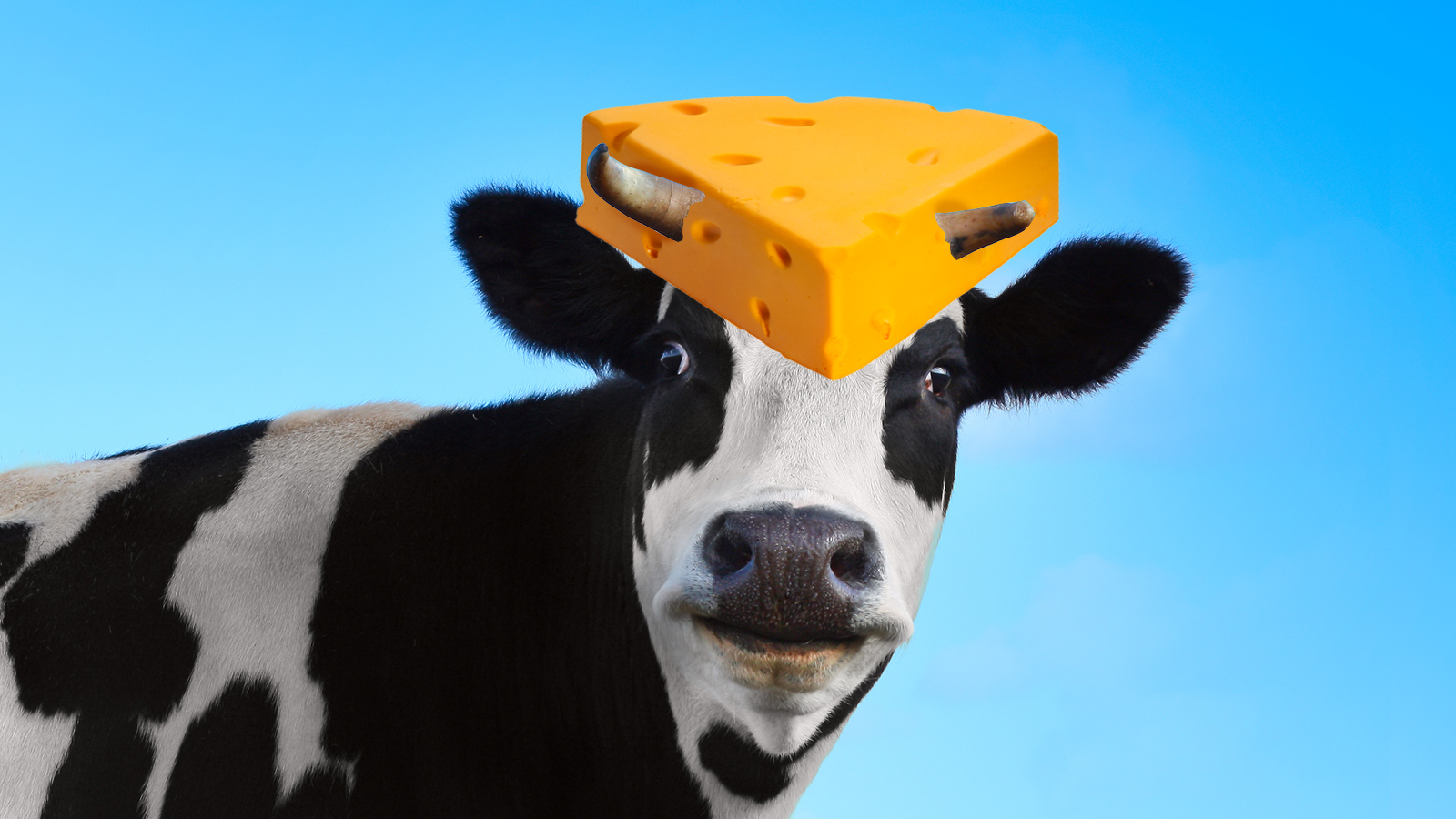Q. Dear Umbra,
The meat industry is taking a devastating toll on the planet. One thing that keeps me awake at night, however, concerns the impact of a vegetarian diet. Are cheese and other dairy products really less carbon-intensive than certain meats (say poultry), or is it inconsistent to maintain cheese as part of my diet if I decided to give up on meat out of concern for climate change? Are all cheeses equal in the eyes of the climate gods? Is it less destructive to top my pizza with Gorgonzola than to gobble cubes of cheddar?
Mathieu
Strasbourg, France
A. Dearest Mathieu,
Bonjour from across the great Atlantic! It’s always so nice to hear from my Continental readers. In fact, I’ve donned a raspberry beret and downed a croissant to get me in the proper mindset to address your question. (Oh fine, you got me — that’s how I get ready to answer every question.)
I can appreciate how bedeviling this question must be for you. As an American, I already have a deep and abiding love for cheese, but the French take this devotion to new levels. And with your fine Camemberts and Bries, not to mention your mouth-watering tradition of serving giant, melty cheese wheels at dinner, who can blame you for fretting?
Sadly — and you knew this was coming — cheese, along with other dairy products, is not exactly an environmentally innocent food choice. In fact, a 2011 Environmental Working Group study declared that cheese was the third-worst animal food product in terms of carbon footprint, behind only lamb and beef. Cheese is significantly more greenhouse gas-heavy than turkey, chicken, tuna, eggs, and milk.
We’ve already gotten into the whys behind those numbers here, but here’s the CliffsNotes version: It takes a lot of milk to make cheese (10 pounds of milk per pound of hard cheese), and producing milk requires lots of methane-burping dairy cows. The cows also produce lots of manure, which adds to the methane problem, and you also have to feed them, which piles fertilizers, fuels, and pesticides from raising the grain onto the tab. If you’re looking for hard numbers, Mathieu, one kg of cheese represents somewhere between 8.8 kg to 13.5 kg of CO2 equivalents (compared to 6.9 kg for chicken and 2 kg for dry beans, for example). And let’s not forget that the dairy industry uses up lots of water, pollutes waterways, and typically relies on methods that can hurt wildlife habitat and soil health when practiced irresponsibly.
But — mais! All is not lost. By skipping carbon-intensive meats, you’re already doing a lot of good for the planet. And as our own Lisa Hymas points out, people typically consume far less cheese than they do meat — compare a 6-ounce steak to the ounce or two of chèvre you spread on your crackers in any one sitting — so it’s easier to limit your impact by simply eating less. Yes, the best way to further reduce the carbon impact of your meat-free diet would be to give up cheese altogether or become acquainted with the wonders of non-dairy alternatives; if you want to give that a try, here are a few vegan “cheese” recipes to get you started. But the perfect is the enemy of the good, and in my book, one may enjoy cheese in moderation without udderly betraying one’s commitment to fight climate change.
As to the second part of your question: No, the climate gods do not consider all cheeses equal. Lower-fat choices are better than fattier ones, because when some fat is removed to make butter or whey cream, the overall carbon footprint gets spread around. These include mozzarella, Gouda, cottage cheese, feta, muenster, and ricotta. You’ll also want to go for soft cheese (think Brie, Camembert, and goat cheese) over harder options like Parmesan, because softer types usually require less milk to produce. Younger cheeses are likewise climate-friendlier because they require less electricity-sucking refrigeration for aging (Monterey jack, that mozzarella again) — unless, of course, you’re looking at a French cheese that matured in a naturally cool cave.
And finally, Mathieu, our favorite dietary guidelines hold as true for cheese as for anything else: Locally produced, organic, sustainable, and humane sources are best. And make sure to buy only what you need — dairy products are one of the biggest sources of food waste (over here, anyway), and that makes all the impacts related to producing them even more ridiculous.
I hope you’ll sleep better at night now, perhaps after the occasional Gorgonzola (or better yet, mozzarella/ricotta/local Roquefort) pizza. Bon appétit.
Cheesemongeringly,
Umbra




